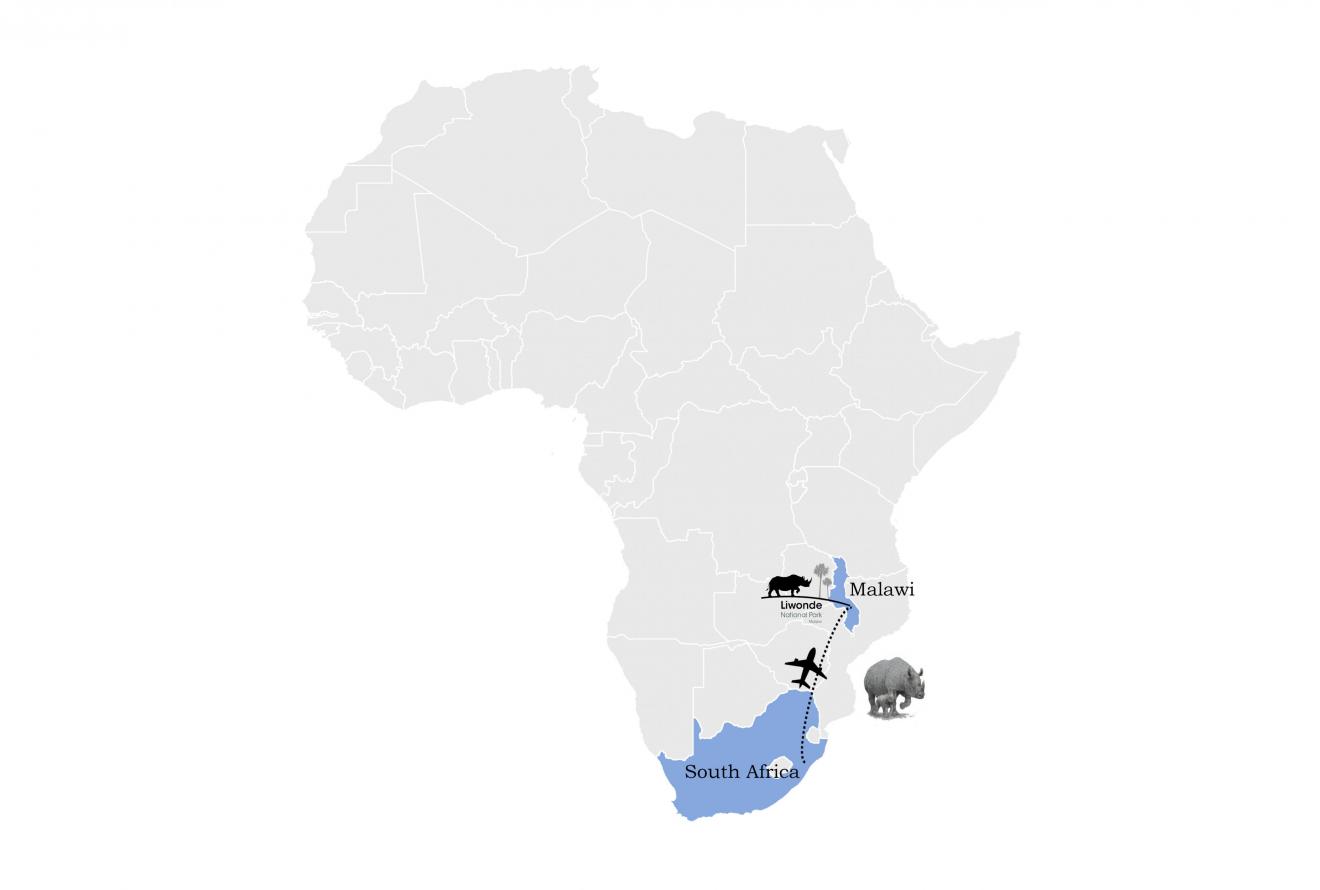The Story
In one of the largest international rhino translocations to date, 17 Endangered Black Rhinos have made the historic journey from South Africa to Liwonde National Park in Malawi
In a unique collaboration between WWF South Africa’s Black Rhino Range Expansion Project (BRREP), African Parks, Malawi’s Department of National Parks and Wildlife (DNPW) and Ezemvelo KZN Wildlife, 17 black rhinos were translocated from Imfolozi Game Reserve in KwaZulu-Natal, South Africa, to Liwonde National Park in Malawi where they were successfully released into their new wild home.
Subsequently, African Parks also moved two of Liwonde’s rhinos form its existing population to Majete Wildlife Reserve, and another rhino from Majete to Liwonde. Based on a custodianship agreement signed between the Governments of Malawi and South Africa, this incredible project aims to boost Malawi’s rhino populations, support regional efforts to conserve the critically endangered species and increase the genetic diversity of existing populations in Liwonde and Majete.
Due to the relentless persecution of the species for its horn, black rhino populations have plummeted across Africa resulting in fewer than 5,000 left in the wild today. Effective park management, law enforcement and community engagement are essential in conserving wild rhino populations across their range. This translocation provides the opportunity move this incredibly endangered species to well-protected areas which are essential to giving populations a chance for growth and survival, and allowing future generations of people to benefit from their natural heritage.
The 17 rhinos were captured in KwaZulu-Natal, South Africa, and quarantined for six weeks in Imfolozi Game Reserve, After which they were flown from King Shaka airport in Durban to Lilongwe in Malawi, with every precaution taken to ensure their wellbeing throughout the process. From Lilongwe, they were then driven to their new home in Liwonde National Park, where they were released on Tuesday 12 November.
Since their release, African Parks has intensively monitored the rhinos to ensure their health and successful adaptation to their new environment and all appear to be settling in well. Rangers conduct patrols daily and innovative technology has enabled the rhinos to be tracked on a live-time basis. Liwonde has been managed by African Parks in partnership with the DNPW since 2015. Since assuming management, we overhauled law enforcement and have worked extensively with communities to secure the park, where not a single rhino or elephant has been lost to poaching in two and a half years. The translocation was made possible with the support of Stichting Natura Africae, Vale Logistics and Save the Rhino International. WWF Belgium, The Wyss Foundation, and the People’s Postcode Lottery have provided key multi-year support for the overall management of these parks.
The Journey
17 black rhinos have made the historic journey from the Imfolozi Game Reserve in South Africa to Liwonde National Park in Malawi in one of the largest international rhino translocations to date spanning over 1,788.21 km (1,111.14 miles).

Watch Now
Rhinos disappeared from Malawi by the 1980’s, but in 2003, in collaboration with the Malawian DNPW, they were brought back to Majete Wildlife Reserve. Since their return, not one has been lost to poaching.
Sign Up for Good News
Sign up to receive #GoodNews about African Parks rhinos in your inbox.